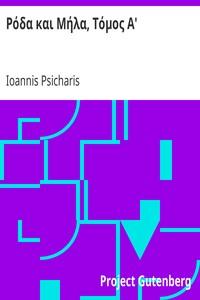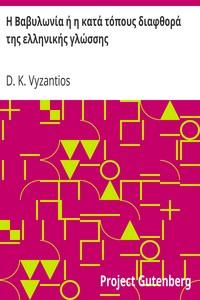Read this ebook for free! No credit card needed, absolutely nothing to pay.
Words: 37112 in 11 pages
This is an ebook sharing website. You can read the uploaded ebooks for free here. No credit cards needed, nothing to pay. If you want to own a digital copy of the ebook, or want to read offline with your favorite ebook-reader, then you can choose to buy and download the ebook.


: Psychic Phenomena A Brief Account of the Physical Manifestations Observed in Psychical Research by Bennett Edward T Lodge Oliver Sir Author Of Introduction Etc - Parapsychology
CHAP. PAGE
INTRODUCTION
BY SIR OLIVER LODGE
SPIRITUALISM
INTRODUCTORY
A short title to a book has its advantages. It has also its disadvantages. It is almost inevitable that it should, on the one hand, seem to include much more than is intended, and, on the other hand, fail to convey the purpose of the author. "Geology" would be a tolerably large subject. "Astronomy" would be vastly larger. But "Spiritualism" is an infinite subject compared with either, and to suggest that its claims to scientific study be considered within the compass of a small volume of not much over a hundred pages seems the height of presumption!
It will therefore be well at the outset to indicate exactly what it is proposed to include in the present investigation into "Spiritualism." The alleged phenomena of Spiritualism may be roughly divided into two classes--physical and mental. Those which belong entirely to the latter class are outside the scope of this book. It is proposed to examine those phenomena of the former class, the reality of which may fairly be assumed to be proved by scientific evidence. The scope of the work is thus reduced to reasonable proportions. There are several groups of phenomena which appear to violate, or at least to extend in a striking manner, laws recognised by Physical Science. The evidence to be relied on will be that of scientific men of high standing, and of other persons of unquestioned literary and social position.
There is, however, an important respect, in regard to which this inquiry is placed in an entirely different position to any ordinary scientific investigation, and one which adds greatly to the difficulties of the student. Ordinary experiments conducted in a physical laboratory can be repeated again and again under similar conditions, and similar results will follow. If attempts are made to reproduce the phenomena of Spiritualism, under what appear to be precisely similar conditions, by means which have previously been successful, failure to obtain the wished-for results may very probably follow. It is no use to rebel and to feel inclined to abandon the pursuit as useless! That would be most unscientific! The inquirer finds himself in the presence of a subtle elusive influence, which he seems unable to control, and which refuses to submit to the laws which govern physical experiments. On the other hand, perseverance may be richly rewarded. An unexplored field of scientific research of unlimited extent may open itself to view. Something of that joy may be experienced which the search into the unknown alone can give.
Mr. Arthur James Balfour, in an address on the occasion of the annual dinner of the Royal Literary Fund, in 1893, said:--
"My friend, Lord Kelvin, has often talked to me of the future of science, and he has said words to me about the future of science which are parallel with the words I have quoted to you about the future of art, and with the hope which I have expressed to you with respect to literature. He has told me that to the men of science of to-day it appears as if we were trembling on the brink of some great scientific discovery which should give to us a new view of the great forces of Nature, among which and in the midst of which we move. If this prophecy be right, and if the other forecasts to which I have alluded be right, then indeed it is true that we live in an interesting age; then indeed it is true that we may look forward to a time full of fruit for the human race--to an age which cannot be sterilised or rendered barren even by politics."
There are some advantages which the study of this subject possesses over most branches of scientific inquiry. In its present early and incomplete stage the most important thing is the accumulation of carefully observed and recorded facts. Even as regards Thought-Transference, in which the number of careful experiments that have been made is far greater than in any other class of phenomena, it is still most important to multiply the quantity of the evidence. In most of the branches of the subject no expensive apparatus is required, and no special scientific or intellectual training. Accurate observation and careful recording, at the time, of all that occurs, without prejudice, and without discouragement at apparent failure, are the chief requisites. Any person, or small group of persons of ordinary intelligence, can train themselves to be equal to this. A very simple instance occurred in the earliest experiences of the writer. After three or four sittings round a small table with two friends, at which there was meaningless tipping, and nothing better than commonplace sentences, the following was tipped out: "Try no more to move"--then this succession of letters--"a t a t a." It seemed useless to go on with nonsense, but one of the party suggested perseverance; when the following conclusion converted seeming nonsense into sense: "b l e take a pencil and write." The result was that one of the party rapidly developed into an interesting automatic writer.
It is quite impossible to foretell the extent of the aid that may not be given, in the explanation of some of these phenomena, by the persevering experiments of intelligent inquirers.
Free books android app tbrJar TBR JAR Read Free books online gutenberg
More posts by @FreeBooks

: The Immortal Moment: The Story of Kitty Tailleur by Sinclair May Phillips Coles Illustrator - Man-woman relationships Fiction


: Stained Glass Work: A text-book for students and workers in glass by Whall Christopher - Glass painting and staining Technology





